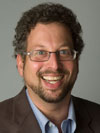| Home | Blog | Ask This | Showcase | Commentary | Comments | About Us | Contributors | Contact Us |

Even the high regard for the American people is taking a hitDISCUSSIONS | June 10, 2006In Africa and Oceania, the mythology of the American people is becoming considerably more negative. By Dan Froomkin In some areas of the globe, displeasure with the American government is leaching over into a sense of dismay about the American people themselves. In all, 34 current and past Nieman fellows from 23 countries took part in a one-question e-mail survey done by this Web site on the occasion of its second anniversary. The question was: Please share with us your thoughts about people’s main perceptions of America where you live, and how their perceptions have changed in recent years, say since 9/11. Seven responses came from Africa and Oceania. Ivor Wilkins, 1984 Nieman living in New Zealand, writes that the distinction between the generally high regard in which the American people were held, in spite of their government, became blurred in 2004, when Bush won reelection and Republicans gained in Congress. “From here at least, there seemed plenty of evidence to be extremely concerned about the direction America was taking when the… elections took place… [and yet] the 'people’ clearly supported what was happening in their name.” Bruce Stannard, a 1983 Nieman from Australia, writes: “There was, of course tremendous sympathy for the United States in Australia, following the 9/11 outrage. There still is. But since then I think many people have watched with a growing sense of dismay and unease as the Bush administration displays an arrogant and overbearing ‘we know what's best for you’ attitude in Iraq. People ask, perhaps naively, ‘why can't the Americans mind their own damned business?’” Philippa Green, a 1999 Nieman from Johannesburg, writes: “In South Africa, there were two interesting political phenomena generated by the war. One was good: most South Africans, across a spectrum of politically conservative to left-wing, and across race lines, thought the invasion of Iraq ill-conceived and dangerous to the entire world. The war united South Africans against it. “The other is bad: among ordinary citizens there seems to be scant perception of any political differences within the United States. Few South African differentiate between those who voted for George Bush and those who didn’t; those who support the war and those who don’t. Americans tended to get painted with the same brush and are seen as responsible for all that’s bad in the world: global warming, tension in the Middle East, violence in Iraq and rising oil prices.” Ton Vosloo, a 1971 Nieman from Cape Town, writes: “As someone who has spent a lifetime post my Nieman year of 70/71 to spread the word of the absolute importance of the U.S. democratic values to our evolving society, one finds oneself somewhat adrift in understanding why the U.S. keeps on playing the role of fireman to the world. We don't want a return to isolationism by the U.S., but we would prefer less stick and more insight in the handling of pressing global issues.” Alice Tatah, a 2006 Nieman from Cameroon, writes: “To informed Cameroonians, 9/11, Abu Ghraib and Katrina dispelled myths of America’s invulnerability, glory and infallibility. Armed with box-cutters, a few individuals brought down the symbol of capitalism in New York; the inhumane treatment of prisoners offended all, and many were baffled by America’s incompetence when they watched the destitute of New Orleans 9th Ward. As disturbing as these images were, Cameroonians continue to perceive America as a fascinating and perplexing place.” But not everyone is obsessed with America. Endy Bayuni, a 2004 Nieman from Indonesia, writes: “Bottom line: Most people don't care about America enough to either love or hate it.”
|
|



